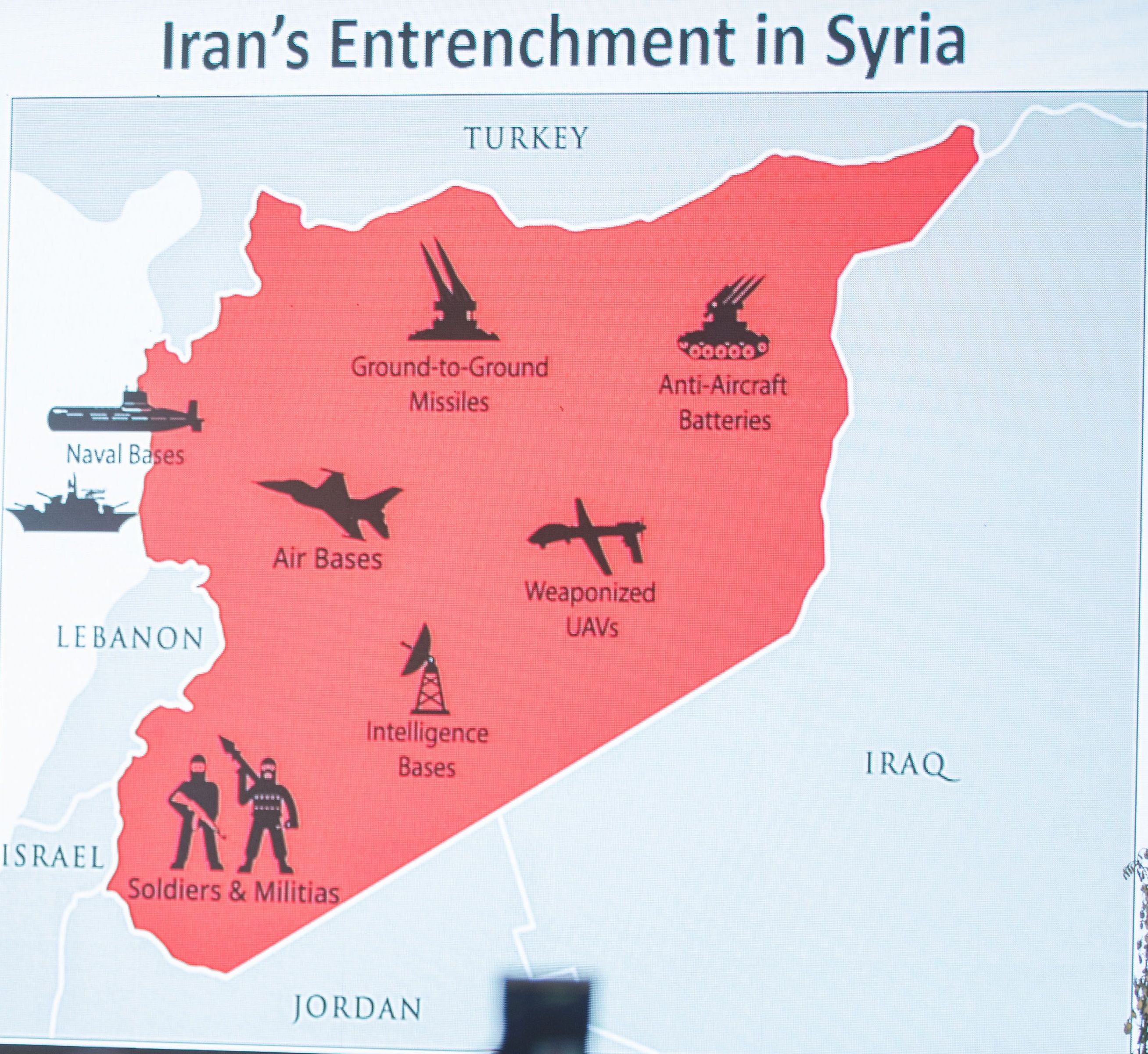An impressive graph depicting the decline of Palestinian terrorist operations in the past three years and a map showing the Iranian military array in Syria illustrated the address delivered by Prime Minister Binyamin Netanyahu to the Homeland Security Forum last week. Initiated by Internal Security Minister Gilead Erdan, the forum was attended by his counterparts from 20 countries, including US Homeland Security Secretary Kirstjen Nielsen.
Israel owes much of its success, Netanyahu explained, to advanced radar systems capable of precisely “reading” the target’s intentions and providing early warning of attacks in the making. One such tool, FOPEN (made by ELTA Systems) operates an L-band wavelength to detect targets through tens of meters of dense jungle, shrub or forest foliage, from a distance of several kilometers. FOPEN exposes secret Palestinian terrorist training drills or preparations for attack in remote areas covered with dense vegetation. This system was also found to be effective on the northern fronts for tracking Hizballah units using uses dense vegetation on the Syrian and Lebanese borders to conceal their stealthy approach to Israeli security barriers.
What the prime minister neglected to mention was the violent onslaughts Hamas has staged for the past three months on the Gaza-Israel border fence, or the hundreds of rockets and mortars fired against Israeli civilian targets on June 3. And, most strikingly he omitted to refer to the Palestinian terror-by-arson, a Hamas campaign in which thousands of dunams of Israeli field crops, farmland, natural vegetation and nature preserves are being laid to waste by burning kites and incendiary balloons. For this low-tech campaign of wanton destruction, the Palestinian terrorists have no need of advanced radar or weapons systems. Already cheap to manufacture, their makers have plenty of helium on hand for the balloons, because it is supplied by Israel to Gaza for medical purposes. After inflating them, an explosive device is attached to make a toy balloon to make it an efficient weapon.
For two-and-a-half months of these attacks, the IDF was under orders not to shoot the kite and balloon supplies or makers or hit the vehicles delivering them to the “protesters” rampaging on the Israeli border fence. After a consultation with legal authorities, on Saturday, June 16, an IDF aircraft finally struck one of the trucks delivering the kites to the Gaza front. According to the military spokesman, the truck was empty, while another aircraft attacked “near” one of the teams assembling the flaming kites for tossing into Israel. These statements confirmed that the IDF is still handling the terror-by-arson campaign with kid gloves, while despairing Israel farmers and local inhabitants watch their livelihood and landscape go up in flames and dozens of exhausted fire fighters scurry back and forth to salvage islands of green and keep residential areas safe.

A strange silence has meanwhile descended on Israel’s northern front after systematic IDF strikes over several weeks demolished Iranian military bases in Syria. It doesn’t take a strategic genius to understand what has caused the pause. The prime minister and chief of staff Gen. Gady Eisenkott appear to have decided to hold their fire during the World Cup soccer finals taking place in Russia. According to some sources, Putin extracted a concession from Netanyahu during their phone call last Friday, June 15, not to start trouble in Syria until the games were over. After all, the Russian troops and officers posted there deserve a respite for watching the games in peace on television.
If this is what happened, Israel’s leaders are doubly at fault. This pause in Israel’s attacks in Syria afforded Iran time to repair the demolished military facilities and import new weapons to replace the damaged ones, without fear of Israel hindering their delivery. Putin was apparently not asked to make Iran reciprocate by stopping those deliveries or ordering its Palestinian pawns in the Gaza Strip to hold off on their attacks, in return for the halt in Israel’s military action on the two fronts.